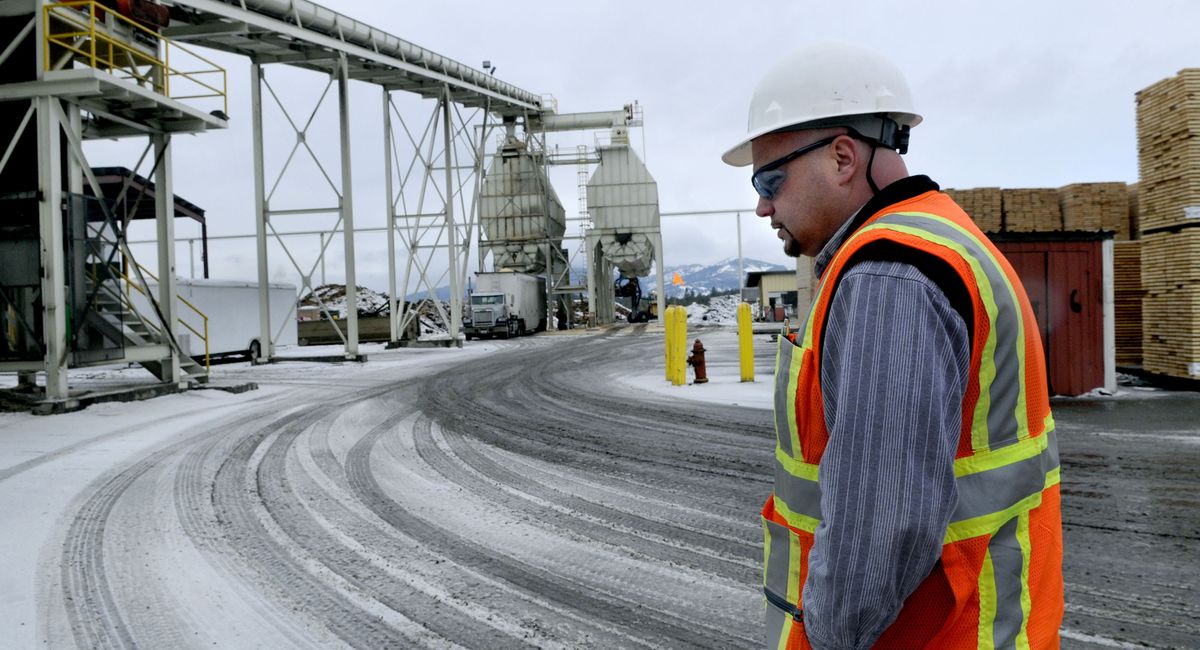Lumber industry trims work force as housing industry falters

ATHOL, Idaho – Every hour that it’s running, the Chilco sawmill spits out enough lumber to build three suburban tract homes, plus a fancy gazebo or bandstand at a nearby park.
By the end of two shifts – a 16-hour day – the mill’s output could frame a modestly sized subdivision.
Plant manager Mike Henley takes pride in the productivity of the mill and its 160 hourly workers, who turn trees from nearby Idaho forests into dimension lumber for the western housing market. But the mill south of Athol is facing hard knocks from the nation’s mortgage crisis and housing market meltdown.
Back in 2005, the peak of the housing bubble, the Chilco mill’s owners had no trouble selling their products. The lumber sliced from Douglas fir and larch trees built subdivisions in California, Nevada and other hot housing markets west of the Mississippi River.
“Everything we produced had a home,” Henley said.
The booming markets are a distant memory. Idaho Forest Group, which owns four sawmills including the Chilco operation, closed one of its mills indefinitely in December and cut the second shift at another operation. Company chairman Marc Brinkmeyer said it was the first time in 30-plus years that he’s handed out pink slips.
“This is the hardest market we’ve ever seen,” he said.
On a recent sales trip to California, Brinkmeyer stopped at a retail lumber outlet that caters to contractors. The outlet, a past customer of Idaho Forest Group, was struggling through a catastrophic slump in sales. Only a quarter of the 160 sales associates remained.
“There’s a lot of trauma out there, a lot of stress,” Brinkmeyer said.
No quick turnarounds are in the forecast. The near-term outlook for the timber industry is the worst in 50 years, according to a recent University of Montana study.
The nation’s housing market is the primary driver of lumber sales, with 75 percent of the lumber sold ending up in new home construction or remodeling of existing homes.
Last year, U.S. lumber output dropped 17 percent. While industry officials rated 2008 as the worst lumber market of modern times, analysts predict that 2009 will be even more challenging.
“Mortgage lending is totally paralyzed, foreclosures are rising and home prices continue to decline. There’s little incentive for anyone to build a new home,” said Butch Bernhardt, spokesman for Western Wood Products Association in Portland, which represents mills in 12 western states.
Bernhardt predicts that the lumber market will hit bottom this year and begin to show modest gains in 2010. But “it’ll be a deep, deep bottom,” he said.
The National Association of Homebuilders is forecasting 469,000 housing starts this year, the fewest since World War II. At the market’s peak in 2005, housing starts surpassed 2 million. Even in 1981, the previous trough for lumber markets, housing starts hit 1 million, Bernhardt said. “We think it’s going to be a long climb up.”
By 2010, housing starts should pass 600,000, according to the National Association of Homebuilders. They may not hit 1 million again until 2012, Bernhardt said.
The outlook for the home-remodeling market is slightly more positive, though not much, he said. Home equity loans provided most of the money for new decks, kitchen remodels and other home additions. “That capital is gone,” Bernhardt said.
The industry’s losses are chronicled in Daily Woodwire, an electronic newsletter that runs lists of mill closures. Each day brings three to four new listings.
Lumber markets are cyclical in nature, noted Jeff Redd, associate editor for Random Lengths, the Eugene, Ore., firm that publishes Daily Woodwire. But this downturn is hitting a new low, he said.
“Most people we talk to say this is the most dire market of their career. And most of them have been in the business for 30 to 40 years,” Redd said.
Lumber output in the West dropped 35 percent in January, compared to a year ago.
“We expect that there will be more casualties – more mills that will close forever,” Bernhardt said.